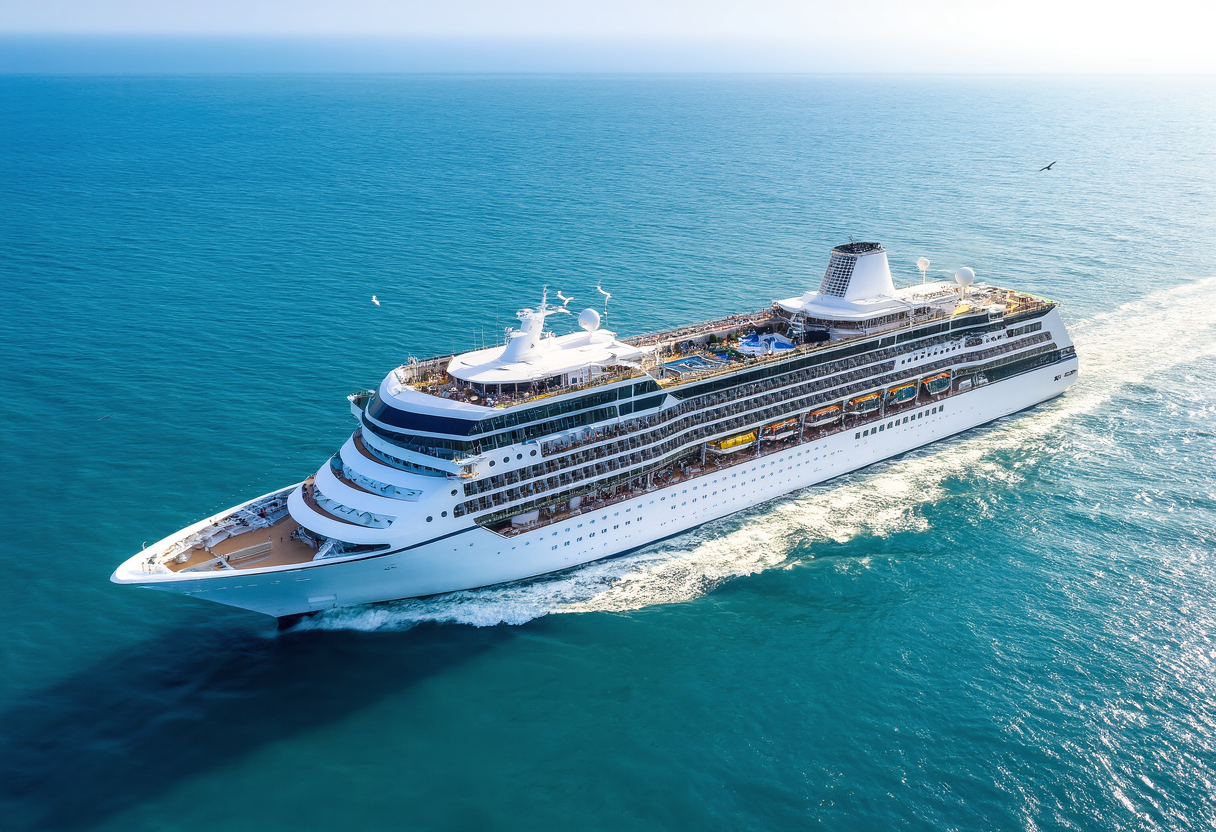Understanding Cruise Tourism: A Market on the Move
Cruise Tourism is a rapidly expanding sector that reflects the evolving preferences of global travelers. As interest in ocean travel surges, various factors shape this industry's dynamics, including sustainability initiatives, technological advancements, and changing consumer behaviors. This article offers insights into the current state and future directions of cruise tourism, emphasizing key market drivers.
The Current Landscape of Cruise Tourism
Cruise Tourism is flourishing as an integral part of the global travel landscape, reflecting the growing interest in maritime adventures. A myriad of factors contribute to the ongoing popularity of cruise vacations, including varied itineraries, diverse onboard experiences, and enhanced amenities. The global cruise market has experienced significant growth, driven by international travelers seeking unique experiences on the open seas. Recent market research indicates that more people are exploring cruise vacations for the first time, captivated by the allure of convenience and accessibility. The marriage of comfort and adventure provided by cruise tourism is particularly appealing, allowing travelers to effortlessly visit multiple destinations while enjoying luxurious accommodations on board.
Factors Influencing Cruise Tourism Growth
The growth of Cruise Tourism is influenced by several key factors, including technological advancements and evolving consumer preferences. As technology continues to shape travel experiences, cruise lines are utilizing innovative tools to enhance onboard amenities and streamline operations. Travelers are increasingly seeking immersive experiences that go beyond traditional sightseeing, prompting cruise companies to reimagine their itineraries. Sustainability initiatives are also becoming a significant market driver, as guests express greater concern for environmental conservation. With a shift towards eco-friendly practices, the cruise industry is adapting its operations to minimize environmental footprints while still providing exceptional travel experiences. Balancing luxury with sustainability is crucial for engaging today’s conscious consumers in the ever-competitive Cruise Tourism market.
Technological Innovation in Cruise Tourism
Innovative technology plays a pivotal role in shaping the future of Cruise Tourism, enhancing both operational efficiency and guest engagement. From advanced booking systems to personalized travel apps, technology now permeates every aspect of the cruise experience. Modern ships are increasingly incorporating smart technologies, such as automated cleaning systems, contactless boarding, and eco-friendly designs that align with consumer demand for responsible travel. With the modernization of cruise vessels, companies are prioritizing connectivity and entertainment, offering passengers access to the latest digital experiences. Furthermore, the implementation of data analytics enables cruise operators to tailor services based on passenger preferences, fostering better relationships and enhancing satisfaction in Cruise Tourism. As technology continues to advance, the potential for growth and innovation within this market remains boundless.
The Emergence of Experiential Travel
The rise of experiential travel has had a profound impact on Cruise Tourism, as travelers seek out authentic and meaningful experiences. Contemporary cruise passengers expect more than just a scenic voyage; they are eager to engage with diverse cultures and local communities. Cruise lines are responding to this demand by crafting itineraries that include unique excursions, immersive cultural activities, and culinary experiences that reflect the essence of destinations visited. The emphasis on experiential travel highlights the shifting priorities of consumers who desire deeper connections with the places they explore. Consequently, this trend presents opportunities for cruise companies to redesign offerings that align with travelers' passions, enriching the overall cruise experience and attracting a new demographic of adventure-seekers.
Sustainability Efforts within Cruise Tourism
Sustainability has emerged as a central theme within Cruise Tourism, as people become more aware of their ecological impact. Cruise lines are increasingly implementing environmentally friendly practices, such as reducing emissions, conserving water, and minimizing waste. The introduction of cleaner engines and renewable energy sources has become a priority, ensuring that cruise tourism can thrive without exacerbating environmental issues. Additionally, cruise companies are focusing on responsible tourism by collaborating with local communities to ensure the preservation of cultural heritage while promoting economic growth. By prioritizing sustainability, the Cruise Tourism industry can cater to the values of today's environmentally conscious travelers and play a significant role in shaping the future of the tourism landscape.
Conclusion: The Future of Cruise Tourism
In conclusion, Cruise Tourism is a dynamic market driven by the interplay of advancements in technology, evolving consumer behaviors, and a commitment to sustainability. The industry is poised for continued growth, guided by the principles of innovative travel and environmental stewardship. As travelers increasingly prioritize unique experiences and responsible tourism, cruise lines must adapt to these changing preferences to remain competitive. The future of Cruise Tourism looks promising, offering exciting opportunities for businesses and travelers alike, as they seek unforgettable adventures on the high seas.
